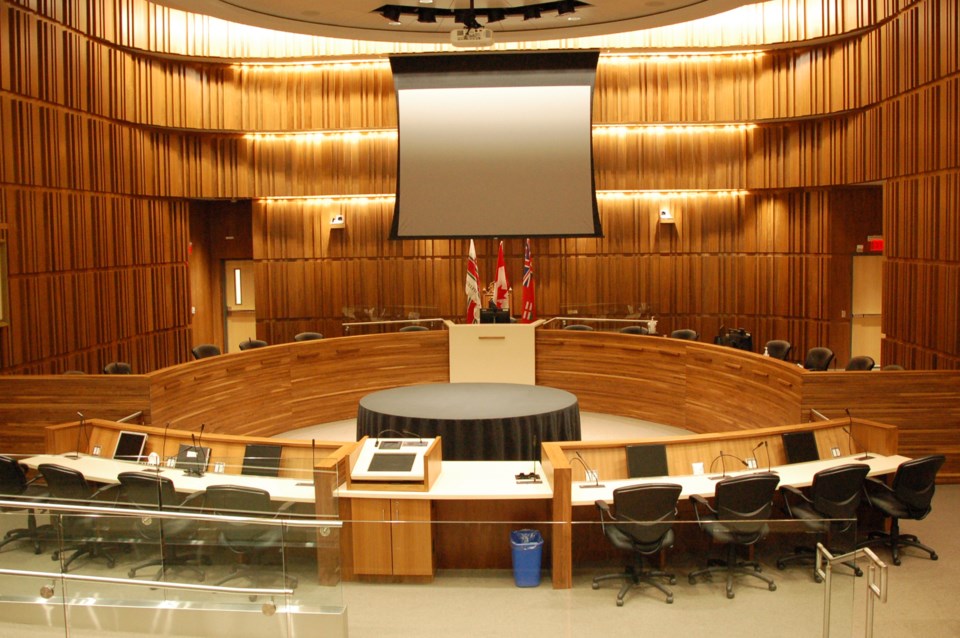Can we start by agreeing that taking nine hours to confirm a budget that’s already been passed is probably not a great look?
After council passed the first ever multi-year budget in December 2021 I wondered if council missed the point. They worked their pencils to the nub to shave off a fraction-of-a-per cent in various places to get the overall levy down for 2022 and then left an unusually high levy for 2023 that they could always deal with later.
Such an action seems almost like the antithesis to the goals of multiyear budgeting.
So the die was cast in 2021 when council passed a 5.17 per levy increase for 2023 with the assumption that when the time came to confirm this year’s budget, they could find a way to shave that down further. “Shave” would be the right word, because nine hours only got us down to 4.46 per cent, not even a full percentage point.
Watching the proceedings this week, I couldn’t help but think of the chess term 'zugzwang,' where a player must make a move, but any move they make will put them in a worse position.
I thought about this while watching Coun. Dan Gibson try to make some big cuts for the year, like nearly $1 million for the phase-in of operating costs for the South End Community Centre and the new main library. Yes, those projects are delayed and perhaps ratepayers are entitled to a break, but the argument that we were softening the blow in ’23 for a harder hit in ’24 was pretty persuasive.
It was the same argument that played out when Gibson tried to use the red end of his pencil to take off the $2.8 million collected for the infrastructure renewal fund; why collect more money when inflation and supply chain issues are forcing a slowdown in how much work the city can do right now? In this case, council half-agreed and cut $1.4 million.
Although I believe Gibson’s heart was in the right place, it must be said that it was this short-term gain for long-term pain that helped paint us into this predicament. The yearly race to hack and slash to three per cent, and perpetually putting it off till next year, is one of the budget pressure points on a whole host of issues, from big stuff like the infrastructure gap to the small stuff like customer service improvements.
So perhaps we learned that lesson. I’m now wondering what we might learn from this budget meeting going forward.
First, maybe we can learn how to read a motion. When Coun. Rodrigo Goller produced a motion to reinstate the deposit of $500,000 into the Affordable Housing Reserve, Coun. Christine Billings noted that the motion might have been out of order because of the recommendation in the main motion that cancelled the transfer.
Billings suggested that the same means could be accomplished by pulling the line in the staff recommendation, and after an hour’s debate and several attempts to wordsmith Goller’s motion, council decided that Billings’ way was the right one. To her credit, Billings did not indulge in the impulse to say, “I told you so.”
Wordsmithing was a pastime at this meeting, because there were a couple of motions that were packed with so much detail as justification and it was all superfluous and edited out. I appreciate the desire for transparency, but council meetings should not be about reading comprehension. The language in a motion should be clear and direct, and it’s the councillor’s job to explain why it’s needed.
On the other hand, there are times when greater clarity is needed. Apparently, there are a few people still on council that want Guelph Transit to carry its own weight with a quota from the farebox, the only city service that has to hold its end up or else be threatened with defunding, or a demand to justify further spending.
I would love to propose a motion that would initiate a $500 surcharge for waste pick-up; pay the charge and get your garbage picked up the same day every week, or don’t and get it picked on some random day every other week. Let me be clear to anyone that needs to hear it: No one using this transit system, such as it is, is getting a free ride.
And speaking of free rides I certainly understand the sticker shock as people look at their next property tax bill. It’s cold comfort but know that we’re not alone because Kitchener’s looking at a 4.8 per cent increase and the City of Waterloo has proposed a 5.35 per cent increase, and both these cities share costs between themselves and the Region of Waterloo, which also charge taxes.
Even our neighbours in Wellington County are suffering higher than normal tax increases. Puslinch is looking at 4.5 per cent, Minto’s draft budget has 4.9 per cent, and Guelph/Eramosa last week passed their own 4.9 per cent increase. At the same time, Wellington County itself added 3.8 per cent this past week.
Now percentages never tell the whole story, but the part of the story all these numbers tell is the same story I laid out in last week’s column. The one piece I forgot to add is that it’s harder for our councils to say “No” in a time when so many are feeling the pain, especially when no one else is coming in to save the day. Not the Ontario government, not corporate CEOs, and not the economic prophets trying to will a recession into reality.
You know that old adage, “the buck stops here”? Well, it did.
